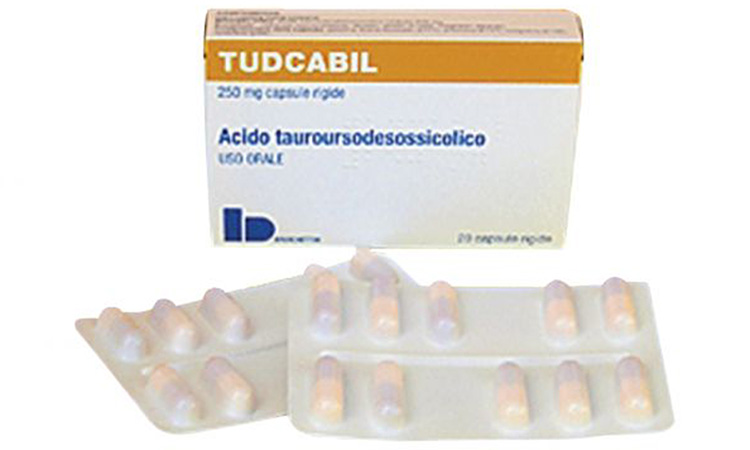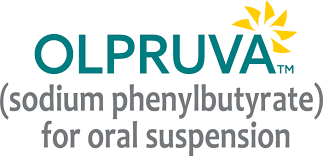Tudcabil (tauroursodeoxycholic acid) vs Olpruva (sodium phenylbutyrate)
Tudcabil (tauroursodeoxycholic acid) vs Olpruva (sodium phenylbutyrate)
Tudcabil (tauroursodeoxycholic acid) is primarily used for the treatment of cholestatic liver diseases, where it helps to reduce the toxic effects of bile acids in the liver and improve liver function. Olpruva (sodium phenylbutyrate), on the other hand, is used to manage urea cycle disorders, a group of genetic conditions that lead to the accumulation of ammonia in the blood. When deciding between Tudcabil and Olpruva, it is essential to consider the specific condition being treated, as each medication is tailored to different underlying metabolic issues; a healthcare provider would make a recommendation based on the patient's diagnosis and overall health profile.
Difference between Tudcabil and Olpruva
| Metric | Tudcabil (tauroursodeoxycholic acid) | Olpruva (sodium phenylbutyrate) |
|---|---|---|
| Generic name | Tauroursodeoxycholic acid | Sodium phenylbutyrate |
| Indications | Cholestatic liver diseases, cystic fibrosis-related liver disorders | Urea cycle disorders, hyperammonemia |
| Mechanism of action | Modulates bile acid pool, protects cholangiocytes, anti-apoptotic effects | Converts to phenylacetate which conjugates with glutamine to form phenylacetylglutamine, facilitating nitrogen excretion |
| Brand names | Tudcabil | Buphenyl, Pheburane |
| Administrative route | Oral | Oral, intravenous |
| Side effects | Diarrhea, nausea, upper abdominal pain | Body odor, taste aversion, nausea, headache, amenorrhea |
| Contraindications | Hypersensitivity to the active substance or excipients | Hypersensitivity to the active substance or excipients, severe hepatic impairment |
| Drug class | Bile acid | Ammonia detoxicant |
| Manufacturer | Not widely commercialized, various suppliers for research | Horizon Therapeutics (for Buphenyl), Swedish Orphan Biovitrum (for Pheburane) |
Efficacy
Efficacy of Tudcabil (Tauroursodeoxycholic Acid) in ALS
Tauroursodeoxycholic acid, known under the brand name Tudcabil, has been investigated for its potential therapeutic effects in Amyotrophic Lateral Sclerosis (ALS), a progressive neurodegenerative disease. Tudcabil is believed to exert neuroprotective effects by mitigating endoplasmic reticulum stress, which is thought to play a role in the pathogenesis of ALS. While preclinical studies have shown promising results, the efficacy of Tudcabil in human clinical trials for ALS remains to be fully established. As of the knowledge cutoff date, further research is required to conclusively determine the benefits of Tudcabil in patients with ALS.
Efficacy of Olpruva (Sodium Phenylbutyrate) in ALS
Olpruva (sodium phenylbutyrate) is another compound that has been studied for its potential use in treating ALS. Olpruva acts as a chemical chaperone that may help to reduce the misfolding of proteins, a process that is implicated in the progression of ALS. Clinical trials have explored the efficacy of sodium phenylbutyrate in slowing down the progression of ALS. However, the results have been mixed, with some studies suggesting a modest benefit while others have not demonstrated a significant impact on disease progression or survival. It is important to note that the use of Olpruva in ALS is considered off-label, and more robust clinical data is necessary to support its use in this indication.
Combination Therapy Involving Tudcabil and Olpruva
There has been interest in the combination therapy of Tudcabil and Olpruva for ALS, based on the hypothesis that their distinct mechanisms of action could have a synergistic effect. Early phase clinical trials have investigated the safety and potential efficacy of this combination treatment. Some preliminary findings suggest that the combination may have a positive effect on certain biomarkers and clinical outcomes in ALS. However, larger and more definitive clinical trials are needed to confirm these findings and to establish the appropriate dosing and long-term effects of the combination therapy.
Conclusion on Tudcabil and Olpruva Efficacy in ALS
In conclusion, while Tudcabil and Olpruva have shown potential in preclinical studies and early clinical trials, the evidence regarding their efficacy in the treatment of ALS is not yet conclusive. Further research, including well-designed, randomized controlled trials, is essential to determine the true therapeutic value of these medications for patients with ALS. Until such data is available, the use of Tudcabil and Olpruva in ALS should be approached with caution, and treatment decisions should be made on a case-by-case basis, considering the individual patient's condition and the current state of scientific evidence.
Regulatory Agency Approvals
Tudcabil
-
Italian Medicines Agency (AIFA), Italy

Olpruva
-
Food and Drug Administration (FDA), USA

Access Tudcabil or Olpruva today
If Tudcabil or Olpruva are not approved or available in your country (e.g. due to supply issues), you can access them via Everyone.org.
How it works

Make an enquiry
Choose the medicine you want to buy, answer a couple of questions, and upload your prescription to speed things up. We’ll get back to you within 24 hours.


Make an enquiry
Choose the medicine you want to buy, answer a couple of questions, and upload your prescription to speed things up. We’ll get back to you within 24 hours.


Breeze through the paperwork
We'll guide you through the required documents for importing unapproved medicine, ensuring you have all the necessary information.


Get a personalized quote
We’ll prepare a quote for you, including medicine costs and any shipping, administrative, or import fees that may apply.


Receive your medicine
Accept the quote and we’ll handle the rest - sourcing and safely delivering your medicine.

Some text on this page has been automatically generated. Speak to your physician before you start a new treatment or medication.
Let's talk
If you have any questions, call us or send us a message through WhatsApp or email:
Contact us




